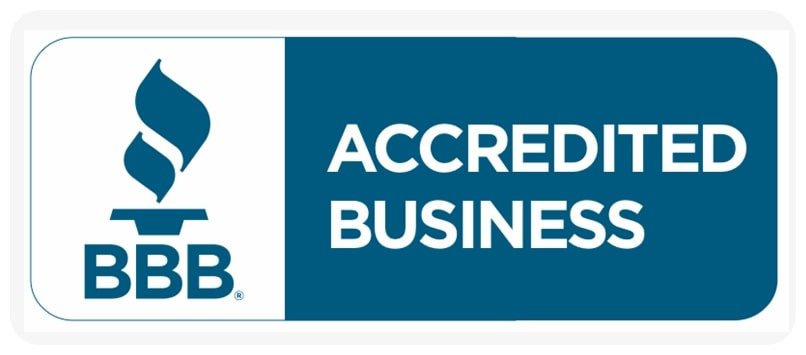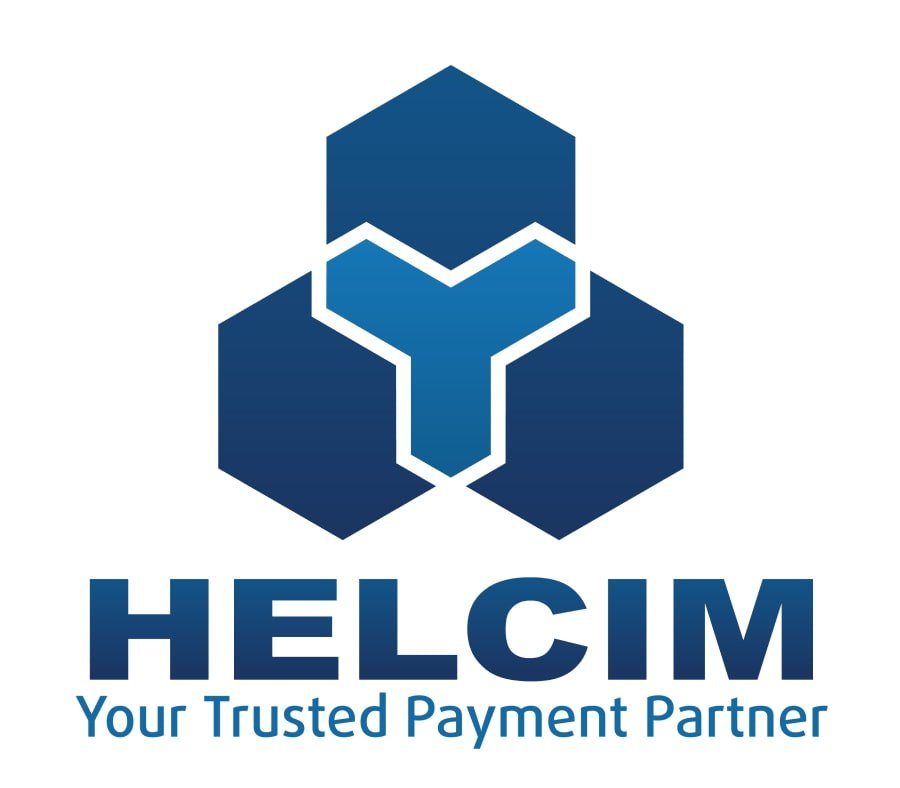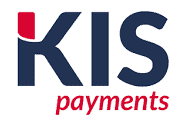Advertising disclosure
Hosting Canada is community-supported. We may earn a commission when you make a purchase through one of our links. Read Disclosure.
The 4 Best Merchant Services in Canada
 Every business will need to work with a merchant service provider if they ever expect to grow past cash-only transactions and want to start accepting plastic at their POS counter.
Every business will need to work with a merchant service provider if they ever expect to grow past cash-only transactions and want to start accepting plastic at their POS counter.
Merchant services can also provide a plethora of other benefits and tools, like POS systems, security tools, integration services, and much more.
However, some merchant services are much better than others. It can be exhausting to have to sift through tons of services and figure out which one is worth your time.
Fortunately, we’ve already found some great options for Canadian businesses. Let’s dive in and explain what you’ll be looking for in a merchant service provider along the way.
See also: Best Web Hosting Services in Canada
What is a Merchant Service?
A merchant service (which can also be more correctly called a merchant service provider) is an organization that can provide systems or products to help various businesses run more smoothly.
For instance, think of a standard small business that needs to accept credit card payments from their clients or customers. A merchant services provider can give them the tools and connections needed to accept those credit card payments.
Other examples include payment providers who can connect point-of-sale systems at your retail store to your QuickBooks system on your computers, saving you lots of manual data entry time. They can provide additional and more complex services, like inventory systems or customer management and payment reporting services.
Why Do You Need One?
Ultimately, most businesses need a merchant service provider because it’s a lot easier to accomplish most of the above tasks with help than on your own. In some cases, it’s not even possible for you to do the service yourself.
For instance, arguably the most important thing that a merchant service provider does is act as an intermediary between the banks in your business. They allow almost instantaneous digital payment processing to take place. In today’s fast-paced world, you need this functionality and convenience for your customers if you ever hope to turn a profit.
That being said, you should never go with just any merchant services provider you find. You should carefully think about your choices or look at the guides like this one that provide you with high-quality merchant services to choose from.
4 Best Merchant Services for Canadian Businesses
Let’s take a look at our four favorite merchant services for Canadian businesses.
1. Helcim
What Do They Provide:
- interchange rates usually around 0.25% +8 cents per transaction
- interchange rates of 0.45% plus $.25 per transaction for e-commerce stores
- volume discounts available for most merchants
- monthly fees of $15 per month for retail stores and $35 per month for e-commerce stores
- all business types supported
- several notable advantages like month-to-month billing, special interchange processing rates, and excellent customer service
Helcim does a great job as a merchant service provider, especially for Canadian businesses that need to take payments of all types. They’re based in Calgary and provide services not only to Canadian businesses but also to those in the United States.
Some of the excellent benefits they include for their clients include exclusive pricing for interchange-plus plans, month-to-month billing without early termination fees, very reasonable monthly account fees, and an all-in-one payment platform called Helcim Commerce.
Even better, all merchants will be able to take advantage of a free mobile app that works on iOS and Android phones. You can purchase an additional $30 mobile card reader to take mobile payments for your business.
You can take a look at their website and find that they provide transparent pricing disclosures like few other providers will. This keeps your costs predictable and projectable, and you won’t need to go around and around to negotiate a good pricing deal for your business.
They also offer a plethora of educational materials and articles to help describe how credit card processing works and to explain how they can manage such great prices without trickery.
Ultimately, they’re an excellent merchant services provider all around. Definitely consider them if you have a business that takes money from a wide variety of customers with similarly varied payment streams.
2. KIS Payments
What Do They Provide:
- interchange-plus pricing rates for all its merchants
- monthly fees instead of long-term contracts
- retail and e-commerce business support
- exclusive interchange pricing points, dedicated account managers for every merchant, good customer service reputation
KIS Payments is a relatively new merchant services provider based in Canada (Nanaimo, BC, if you’re curious). They were founded in 2017, but although they are small, they’re already one of the best merchant services you can pick if you need general payment processing in addition to other services and products.
To start, KIS provides all its merchants with month-to-month billing arrangements instead of long-term contracts. They also forgo early termination fees, as well as provide interchange-plus pricing only.
This means you get the low rates KIS is known for without having to make a decision about pricing plans. Those who are starting up a new business already have plenty of other decisions to make, so it’s nice to have something else taken off their plates.
Top-Notch Customer Support 📞
They also have a fantastic reputation, particularly in the realm of customer service once you set up an account with their company. Every merchant gets a dedicated account manager, so there’s always someone on the other end of the line you can contact about technical problems, payment questions, or anything else.
Their website does lack a few more pricing disclosures than what Helcim provides, but the aforementioned account manager should be able to help you there, too.
Their staff is comprised of people with 30 years plus of combined experience. This allows them to save, on average, 15% for most of their clients. Add to all of these factors additional bonuses, like rewards programs and gift cards, and you have a great service through and through.
All in all, KIS is a great payment service provider that offers security, stability, and excellent pricing for a variety of Canadian businesses.
3. Square
What Do They Provide:
- rates at around 3.4% plus an additional $.15 per transaction, or even cheaper
- no monthly fees
- mobile, retail, and e-commerce business support
- EMV card readers, predictable pricing, monthly billing plans
Square is certainly a top choice if you are looking for a merchant service provider and you need mobile processing to be a prime priority. While they don’t exclusively operate in Canada, they’re a great choice for smaller Canadian businesses or those that almost entirely rely on mobile payments.
They don’t provide full-on merchant accounts but instead are dedicated payment service providers. Signing up for their service will have you join an aggregated merchant account – this is shared with other merchants. As a result, you don’t get any monthly fees or long-term contracts; everything is paid for on a month-to-month basis.
Square’s pricing system is based around a flat rate, so it’s easy to understand and you can negotiate this to some extent. They have several different pricing points you can choose from, like a “standard point-of-sale and appointments” plan that’s set at 2.65% per transaction with credit cards and another $.10 for certain debit cards.
Their “e-commerce” pricing plan, on the other hand, is 2.9% and an additional $.30 per transaction. You can also benefit from a customized processing rate if your business makes over $250,000 per year.
Not the Most Affordable Service on the Market 💰
While these rates are far from the most affordable in the industry, they’re also not exactly exorbitant. You’ll also likely save at least some money over the long-term since they don’t charge you any extra account fees. As a result, we think they’re a great choice if your business processes around $5000 or less every month.
They have additional benefits we haven’t even mentioned yet. For instance, they provide a free mobile app for any smartphone or tablet regardless of the operating system, a free Square reader you can use at your point-of-sale, and an additional $49 “contactless” or chip card reader.
Ultimately, while they aren’t the best when it comes to account stability or overall customer service, Square does provide a lot of value to merchants that are primarily focused on mobile payments and who have small accounts.
They’re a great fit if you aren’t interested in growing your business exponentially anytime soon and want something easier to start with and understand.
4. Shopify
What Do They Provide:
- rates are around 2.9% plus $.30 per transaction for online purchases
- several volume discounts are available
- monthly fees do apply between $9 and $299 depending on the plan
- Best for e-commerce businesses or websites
- additional advantages include a free 14-day trial, third party integrations for gateways, and protectable pricing points
Shopify is our choice if you need a payment processing service focused on e-commerce payments or online websites. Their services include all kinds of features you could take advantage of when running your online business; of course, this also includes credit card processing.
Related: How to Use Shopify
In terms of pricing, Shopify provides several pricing plans that go between $9 a month for a very light plan all the way up to $299 per month if you want even more features and better support.
Canadian businesses get to choose between using Shopify Payments, which is their own credit and debit card processing system, or a third-party payment gateway (related: best web hosting for small businesses).
The former option will let you benefit from an easy to understand flat-rate pricing plan that starts at 2.9% plus $.30 per transaction for any online purchase and 2.7% for any in-person purchases.
Extra discounts are available for all the rates if you sign up for more expensive monthly plans, enabling you to save money as you spend more with this merchant service provider. Additional transaction fees may apply, though, if you decide to use a third-party gateway.
Carefully Study All the Plans 📖
You’ll benefit by studying each plan in detail. For instance, the most basic plan (at $9 per month) doesn’t include online store support or customer support via telephone.
You can still sell in person or using social media channels, but it’s ultimately not the best if you really want to grow an online business. So be careful not to accidentally sign up for a cheap plan so you don’t get what you need.
On the flip side, their middling plan (called Basic Shopify, priced at $29 per month) is a great bargain that comes with a lot to like. Relatively high processing rates do apply, but you get online store support for unlimited products, 24/7 telephone customer support, and additional advantages.
Upgrading to another plan is pretty easy, and you don’t have to worry about early termination fees or long-term contracts.
They’re a good choice, all in all, for anyone primarily doing business over the Internet.
How to Choose a Merchant Service Provider
Picking a merchant service provider heavily depends on you thinking about several major factors before you set up a contract or make a purchase. Let’s examine these now.
What Services Do They Provide?
First off, look at what each individual provider actually offers in terms of products or services. Some merchant service providers specialize in a particular industry or only give out certain types of products; others are more versatile and will offer tons of things to help your business run more smoothly and turn a bigger profit.
Processing of Payments
 As mentioned at the beginning of this guide, payment processing is arguably the main thing that merchant services can offer to businesses. In a nutshell, they act as an intermediary between banks in your business, or between your bank account and your customers.
As mentioned at the beginning of this guide, payment processing is arguably the main thing that merchant services can offer to businesses. In a nutshell, they act as an intermediary between banks in your business, or between your bank account and your customers.
This, in turn, lets you accept whatever type of payment your customers prefer to use. This includes credit cards, debit cards, gift cards, and other types of electronic or digital payment.
No matter what, the payment should arrive securely in your bank account within one or two business days.
This is also great in terms of keeping good accounting records. If your money shows up in your account promptly, you can better keep track of how much profit you actually make on a weekly basis instead of having to do a bit of guesswork.
This all works because a merchant services provider can move a customer’s funds straight to your bank account whenever they swipe a card at a POS system or card reader. Some merchant services providers allow you to apply for and qualify for “next-day” funding, resulting in you getting paid even more quickly.
Of course, many excellent merchant service providers also allow you to purchase or rent various mobile card swipers or credit card terminals. You can pick up multiple of these depending on how many you need for your business.
Even if you primarily do business online, most modern merchant service providers will also allow you to integrate different payment methods with an e-commerce store. For instance, virtual terminals exist that can allow you to accept payments either online or over the phone. It all depends on what the service provider in question has to offer.
Security for Payments
 Perhaps just as importantly, many merchant services also offer payment security tools and systems. In this day and age, when there’s almost always a threat of hackers or other malicious cyber activity, plus real-world threats like credit card data lifters, security is a critical part of any business.
Perhaps just as importantly, many merchant services also offer payment security tools and systems. In this day and age, when there’s almost always a threat of hackers or other malicious cyber activity, plus real-world threats like credit card data lifters, security is a critical part of any business.
You need good security systems in place in order for your customers to feel secure enough to spend their money at your location.
This is doubly true because accepting electronic payments always carries a bit of inherent risk. Some reports even estimate that billions of dollars every year are lost to credit card fraud and identity theft.
A merchant services provider can help you reach PCI compliance, which in turn ensures that your cardholder data (like the names and credit card numbers of your customers) are well protected against data breaches or other opportunities for theft. Furthermore, they can help you set up different security measures like strong passwords and assist you in setting up effective antivirus software.
Merchant services can also maintain PCI compliance on the payment end of things. They do this by tokenizing relevant information and implementing different fraud prevention measures.
Products and Technology
Thirdly, merchant service providers offer different forms of technology or valuable products to large and small businesses alike. These aren’t just little gadgets you can use to accept payment or stop people from stealing products in your store (although these are also included under many providers’ product lists).
Instead, merchant services providers can also give you complex tools to analyze customer data. This can let you figure out how to maximize your store’s product list, product placement, marketing effectiveness, and much more.
Is Your Monthly Processing Volume Capped?
Some merchant services providers come up with artificial caps on how many transactions you can process within a month. Others may even place a cap on a monetary value – this effectively stops you from being able to accept electronic payments if you have a particularly profitable month. As you can imagine, is terrible for your business and is something you should always try to avoid.
Always double check when considering a merchant services provider to see if they arbitrarily cap your monthly processing volume. While you might not think that this is a big deal, particularly if your business is just beginning and you don’t expect profits to turn up anytime soon, you don’t want to miss out on sudden surges.
Plus, there are plenty of worthwhile merchant service providers that give you lots of valuable tools and insight without something as irritating as this “feature”.
What Are the Rates?
 Of course, you should heavily factor pricing to your ultimate decision.
Of course, you should heavily factor pricing to your ultimate decision.
Merchant services don’t offer all of their value or functions for free. There are several different ways they can charge you. Some charge you via flat pricing or flat fees for all your transactions.
Others may use a tiered pricing system, usually accompanied by various card membership associations and applying different fees to different card types.
Some cards will cost less, while others will carry heftier fees. Still more may also use something called “interchange pricing”. This will have the merchant service provider charge based on the type of card used and add a small fee on top of that.
Which is the best? They all have different advantages and disadvantages. Merchant services that charge flat fees are easier to understand. The fees usually hover between 1.75% to 3%, in addition to an extra “per transaction” fee. So take this into account when considering your average profit to see whether it’ll be worth your time and money.
The benefit to using this method is that it’s pretty easy to project how much money you’ll lose to the service based on your average electronic transactions. Budgeting for this loss is, therefore, manageable.
Tiered pricing can also be worthwhile depending on what types of cards your customers tend to use that your establishment. If you find that most of the customers in your area use cards that have lower overall costs, using one of these pricing models could be beneficial in the long run.
On the other hand, interchange pricing can save you money depending on the types of cards used and what membership associations exist between cards and merchant service providers. This requires a lot more research on your end, though, and existing customer data; you need to know what types of cards are used to figure out if interchange pricing will be worthwhile.
Furthermore, don’t forget to think about various universal merchant account fees. These show up on your statements no matter what and include charges like authorization fees, transaction fees, and assessment fees. These are all less than 1% on average, but they all add up over time.
All this is to say that you should heavily consider the overall rates and pricing models offered by merchant services before signing on the dotted line. Prices aren’t everything, but it can definitely affect which way you lean, particularly if you aren’t making big profits yet or are just starting out.
What Does Their Technical Support Look Like?
 It’s also a good idea to see how a given merchant service provider handles technical service and support. It’s more than likely that you’ll have at least one question as you try to use your purchased technology and services;
It’s also a good idea to see how a given merchant service provider handles technical service and support. It’s more than likely that you’ll have at least one question as you try to use your purchased technology and services;
Having someone on the other end of the phone line or web chat session will make it a lot easier to find a solution to your problem.
However, some merchant services don’t have skilled individuals on the other end of the line. Make sure that they have the technical expertise necessary to answer any questions you have about their technology.
Bonus points if they have people who can help you set the stuff up in the first place. This may be especially important if you aren’t overly technically savvy yourself, or if you are setting up a brand-new type of technology your system that you aren’t yet familiar with.
What Are Their Online Reporting Capabilities Like?
Consider what a merchant service provider’s online reporting capability looks like. The more data they have available to offer you and to report to the banks, the more secure your customer data is in the better you’ll be able to understand all your transactions.
You can also use some services to double check payment numbers or volume on your end versus what was sent to the bank.
How Fast Do Deposits Process?
Naturally, how quickly a deposit can process impacts when you can fully account for the purchase and settle it in your books. Merchant service providers that can deposit more quickly are more valuable almost every time.
But double-check to make sure that this fast processing speed doesn’t come with several strings attached or subpar performance in some of the other categories mentioned above.
How Competent Is Their Staff?
This is somewhat related to the technical competency point mentioned earlier, but here we more mean their customer service in general. Merchant service providers that don’t have good customer service staff are hardly worth your time and money.
What’s Their Reputation?
Finally, don’t hesitate to do a little digging and look into the reputation of a given merchant service provider. One good resource you can use is the Better Business Bureau, or BBB. This has records of accredited institutions, like many merchant services, in addition to compiled customer complaints and reports of fraud or other potentially worrying information.

You can use resources like the BBB to figure out whether a given merchant service provider is worth your time or if they have any red flags you should avoid. Furthermore, you should continue to look up other reviews and guides like this one before making a final decision.
Frequently Asked Questions
Which Credit Card Processing Type is Cheapest for Small Business?
In many cases, going with a merchant service provider that charges a flat fee for all of their credit and debit card processing is the cheapest option if you have a small business.
While it may not be the case for every individual transaction, if you don’t have people that all use the same card or use a membership card from your business, chances are good that a flat rate is cheaper than trying one of the other pricing models.
Still, it all largely depends on what cards your customers use and what deals are available.
How Do You Avoid Merchant Fees?
Unfortunately, merchant fees will always be present so long as there are digital payment services that act as intermediaries between you and the bank. This being said, small businesses often need to save every cent they can. There are ways in which you can lower the amount you pay in merchant fees if you are smart and willing to do your due diligence.
One of the best ways to do this is to swipe credit cards rather than entering them manually.
Interestingly, many merchant service providers are required to charge more if you enter a credit card’s information manually because of extra processing requirements. Swipe the cards and you will net yourself a moderately smaller merchant fee. It’s not much, but it adds up over time.
Secondly, you can always impose minimum credit card sales. These are things like apparently arbitrary limits on how much someone has to spend at your store before they can use a credit card.
This is a tactic often used by many small businesses, and it helps you widen the gap between your profit margin and breaking even. It’s fully legal and it can encourage a transaction via cash, 100% of which goes to you instead of to the credit card companies.
Lastly, you can do what we did above and thoroughly shop around for the right merchant service provider for your small business. Try to find providers that have low fees or other charges and you’ll end up paying less in extra costs whenever you accept plastic instead of cash for your payments.
What is a Good Merchant Service Rate?
A “good” merchant service rate is the lowest you can possibly find. But if you are stuck between several different options and they all seem to cost about the same, look for the one that is closest to 1.5% or so for swiped cards at the lower end and 2.9% at the higher end.
Anything between these two numbers is pretty standard for the industry and is what you would expect from a good merchant service rate. Obviously, getting closer to 1% or even lower is the goal.
Summary
Overall, picking out a great merchant service provider for your business is one of the most important things you’ll do to secure long-term profitability and success. Chances are high that you’ll need to work with a merchant service provider in one way or another, even if your business is quite small. That’s why choosing the right one is critical.
Hopefully, we’ve provided at least a few good choices for you to think about. In the event that you don’t think any of our four favorites are a good fit for your business, don’t forget to think about how we chose them to identify a good organization. Good luck!














